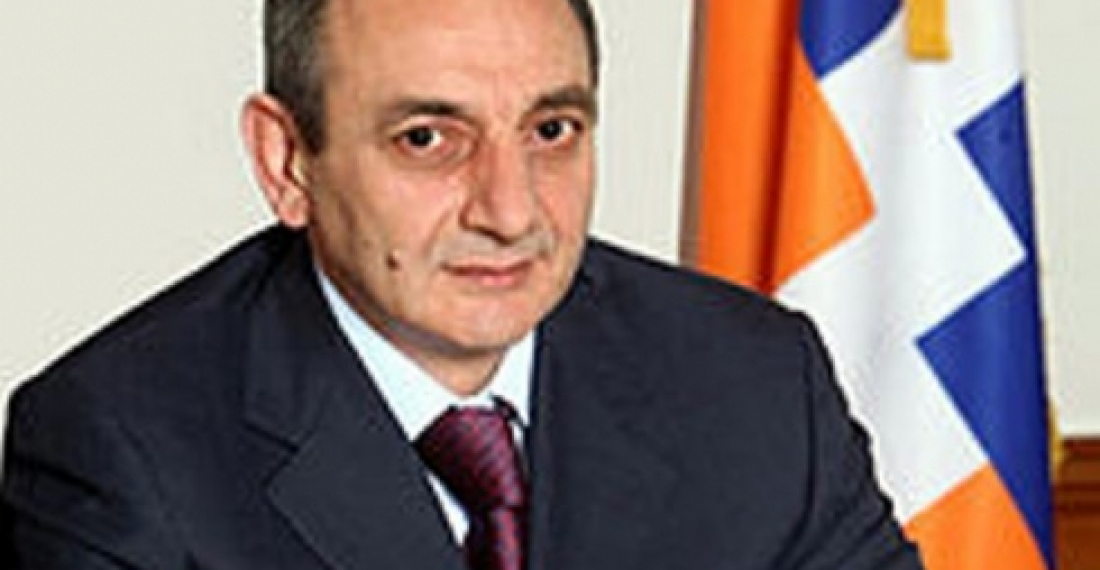There were no surprises in the elections in the self-declared Nagorno-Karabakh Republic held yesterday. First results indicate that the incumbent President, Bako Sahakyan secured more than two two-thirds of the votes cast, whilst the main opposition candidate Vitaly Balasanyan has gathered 31.40 per cent of votes. The third candidate got less than 1%. The official results are expected on Sunday.
Voter turnout was reported high, at 73%. 273 polling stations were set up across the territory, along with one in Yerevan for Karabakh voters living in or visiting Armenia. According to Karabakh's Central Election Commission, some 98,000 people were eligible to vote The day passed relatively smoothly, with few complaints recorded.
Although the voting process has been monitored by observers from several countries, the international community has distanced itself from the process. Catherine Ashton, the European Union's High Representative for Foreign Affairs, said in a statement that the EU "does not recognise the constitutional and legal framework in which [the poll] will be held. These 'elections' should not prejudice the determination of the future status of Nagorno-Karabakh in the negotiated general framework of the peaceful settlement of the conflict". NATO's Special Representative for the Caucasus and Central Asia, James Appathurai, expressed the alliance's position that "Holding such elections is in contradiction with the peaceful settlement of the Nagorno-Karabakh conflict". This view was reiterated by the foreign ministry of Azerbaijan, which stated that the Karabakh polls "damage the negotiation process".
For Armenia, however, and for Nagorno-Karabakh's de facto authorities, an internally consistent and peaceful election under international observation, while unrecognised, is seen as evidence of the latter's capability and legitimacy, and as a vital part of their diplomatic armoury in the dispute with Azerbaijan. The opposition Armenian National Congress stated, that "In the military and diplomatic war with Azerbaijan, high level and active democratic instituions should be among NK's primary resources, and this will be noticed by the international community ... The latter's reaction to the elections will greatly depend on the quality of the elections".
While Armenian media and political figures have stressed the presence and diversity of the monitoring missions, the Azerbaijani press has concentrated on reporting different countries' statements of non-recognition of the election, and Azerbaijani political commentators' dismissal of it as an attempt "to attach the visibility of democracy to the military regime which exists in Nagorno-Karabakh today".
Commonspace.eu political editor said in a comment: "The elections have changed very little either domestically in Karabakh, or in the context of the ongoing negotiations for the settlement of the conflict. Politics in Karabakh has been largely stagnated over the last five years and thanks to the efforts of opposition candidate Vitaly Balsanyan the election campaign introduced a little excitement in it for the first time in many years. The result was however as expected. It is unlikely that Karabakh will see any major changes in the current context. With the elections out of the way it is hoped that all sides can now focus again on the peace negotiations. The Foreign Ministers of Armenia and Azerbaijan are scheduled to meet in New York in September on the margins of the UN General Assembly, and there is also a possibility they may meet earlier in Europe. These meetings are seen as important to keep the lines of communication between the sides open. They will not however produce the long awaited breakthrough, which requires a more direct engagement by the presidents of the two countries."
source: commonspace.eu with agencies
photo: The President of the self declared Nagorno-Karabakh Republic, Bako Sahakyan (archive picture)







